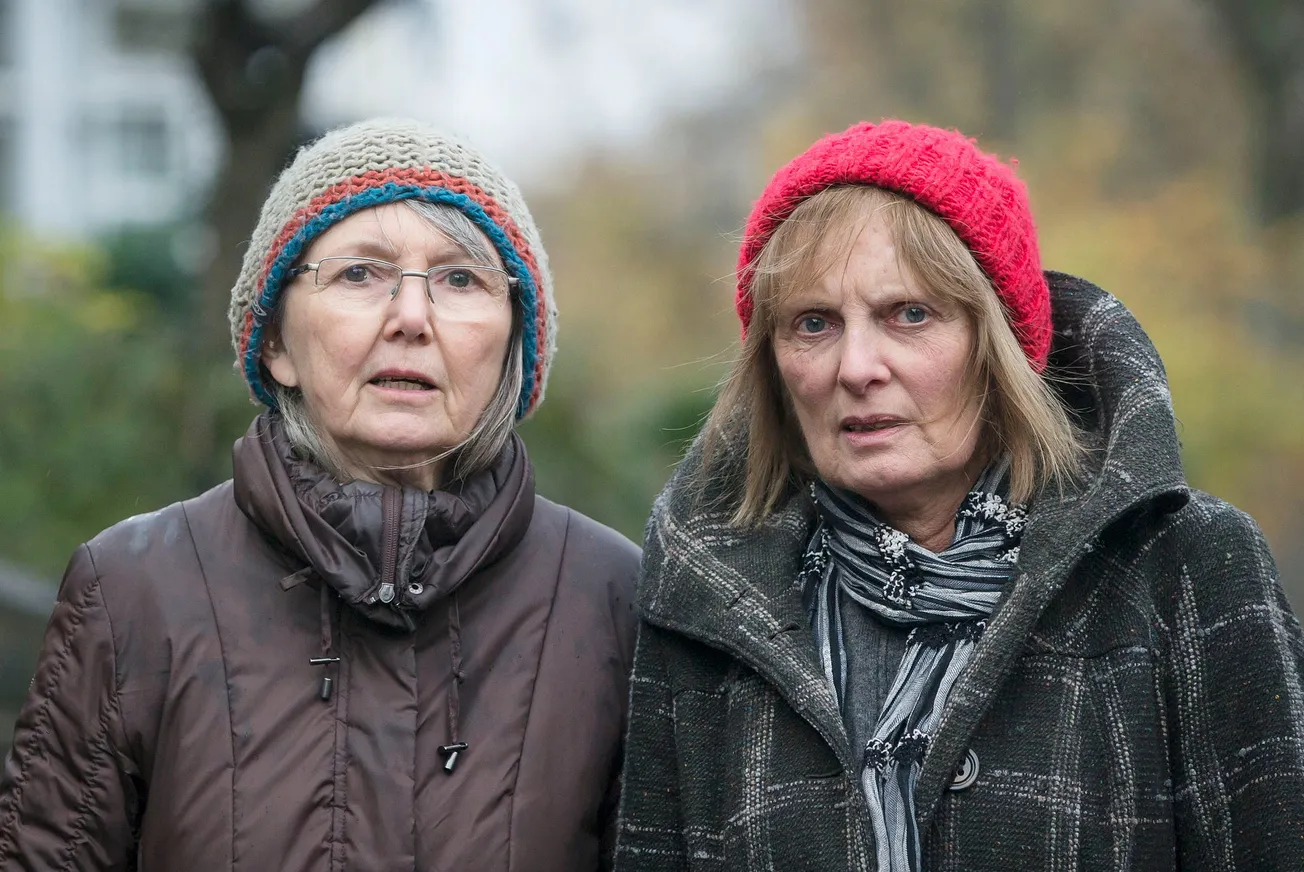Good afternoon members — and welcome to today’s newsletter.
Today we look at a new book written by two of the leading lights of the tree protest movement. Calvin Payne and Simon Crump have been working on Persons Unknown: The Battle for Sheffield's Street Trees since 2018. We spoke to them on Thursday to find out how the book came about and how they feel about their remarkably successful campaign three years on.
Membership offer: By now you will have received an email telling you how you can gift a free month’s worth of Tribune membership to up to three friends of your choice. We really rely on our members to spread the word about The Tribune, so if you know someone who would enjoy our model of ad-free, thoughtful, non-sensationalist journalism, please let them know.
Mini-briefing
- Now Then reports a long-running investigation into the conduct of Sheffield City Councillor Mazher Iqbal has found “no evidence” he broke any rules. Last year the Darnall councillor was accused of promoting the interests of private companies and wasting public money by cancelling public consultations. An internal investigation has now found he didn’t break the members’ code of conduct and can continue in his role. However, minutes from the council sub-committee which considered the report did criticise the actions of Coun Iqbal and others at the council. Simon Ogden, the former head of city regeneration who first raised concerns last year, has criticised the investigation.
- A statue commemorating the life and work of South Yorkshire writer Barry Hines has gone on display in his hometown of Barnsley. The statue, which depicts the character Billy Casper from the movie Kes (based on the book A Kestrel for a Knave by Hines) was unveiled by director Ken Loach and the man who played Casper Dai Bradley on Thursday. The artwork was funded by £100,000 in public donations and was created by sculptor Graham Ibbeson, who provided his services for free. Fans of Hines should also look out for The Tribune’s weekend read which focuses on the time in 1984 he made Sheffield the fictional focus of nuclear armageddon.
- As The Tribune reported on Monday, dozens of people from Sheffield have travelled to Glasgow for the COP26 climate change conference. The conference lasts two weeks and a huge “Global Day for Climate Justice” is planned for the middle Saturday. In Sheffield protesters will gather at Devonshire Green at 12 before marching to Sheffield City Hall at 1pm where a rally will take place at 3pm. If you fancy grabbing a bargain as well as going to the demonstration why not visit the Hedgerow Market on Division Street before or after (12-6). The latest Peddler Market in Neepsend also takes place tonight and tomorrow (November 5-6).
Join the #COP26 Coalition protests for #ClimateJustice in #Sheffield happening this Sat 12pm at Devonshire Green! #ClimateAction
— Olivia Blake MP (@_OliviaBlake) 2:11 PM ∙ Nov 4, 2021
Five years ago this week, Calvin Payne and Simon Crump were arrested on Marden Road in Nether Edge — for standing under a tree. As is now well known, the pair were protesting against a programme of mass tree-felling being carried out under a contract between Sheffield City Council and a company called Amey.
A video on Facebook shows them being arrested, the beautiful autumn colours of the fallen plane tree leaves all around them. In the footage, two police officers read them their rights under an obscure clause of the Trade Union and Labour Relations Act, legislation that was in August 2018 found to have been used against them illegally. The pair were arrested at 1pm and not released until almost 9pm that evening.
Their arrests ended an uneasy “Cold War” that had existed since the first significant protests began in June 2015. But it also cemented the pair’s position as the “enfants terribles” of the tree campaign. And it set in chain a sequence of events which ended in their total victory: against the council, the police, their media opponents — and even other factions of the tree campaign.

Now, more than three years after the last protest took place, Payne and Crump (along with Julie Stribley who worked to transcribe the hundreds of hours of interviews they conducted) are preparing to bring out a book which documents their campaign. Persons Unknown: The Battle for Sheffield's Street Trees, will be published this month by the aptly named Wrecking Ball Press.
The long tail of the row still rumbles on today: an independent inquiry is due to begin soon and a “tree archive” of documents relating to the scandal is in the process of being compiled. But the book doesn’t rehash the same old well-trodden story. Instead, it's really an account of what the activists did — how their fight went from cups of tea and meetings in bowling clubs to civil disobedience and suspended prison sentences.
“I started writing it as a tree campaigner and ended it as a historian,” Payne tells me over a Zoom call on Thursday. “The book documents the story of the development of the campaign and its tactics. The gradual realisation that what we were doing wasn’t enough and the understanding we were going to have to do a lot more.”

We’re on a crackly and buffery video call, but despite this it’s immediately obvious that the two are very different characters: Payne is calm, analytical and measured. Crump, less so. Simon can’t get his camera working so remains a disembodied voice throughout the interview. A regular stream of expletives come from a black box on the screen which bears his name.
Persons Unknown runs broadly chronologically, and is astonishingly comprehensive. Starting with the first direct action that took place in June 2015 and ending with the final confrontation on Chatsworth Road in March 2018, it includes testimony from around 100 people — far more than even the most conscientious journalist could ever hope to interview.
The story is quite a ride. The authors say they thought about imposing a Hollywoodesque dramatic structure on the events but in the end decided it wasn’t needed. “At the beginning people are standing around and writing letters and at the end people are being assaulted and punched,” says Crump. “So it's pretty dramatic anyway.”

The Streets Ahead contract Sheffield City Council signed with Amey had actually been in place since 2012. But Private Finance Initiative (PFI) contracts are shrouded in secrecy so it was a few years until many people cottoned onto the full implications of the deal. Payne estimates that 2,000-3,000 trees had already been cut down before the campaign held its first meeting.
“For all the credit we get, we were slow to do the things that worked,” he says. Implicit in this is a criticism of the more moderate early tactics employed by the leadership of STAG (the Sheffield Tree Action Group). Over time, as the group became more radicalised, other voices like Payne and Crump’s came to the fore, advocating non-violent direct action of the kind that ultimately worked.
Payne says there was a “long struggle” within the campaign over what tactics were appropriate. Some who were planning to stand under trees and risk arrest were told in no uncertain terms by the group’s leaders not to. Others who did take part in direct action were denounced for doing so.

Key to changing this mood were the flashpoints of the winter of 2016-2017. Two weeks after Payne and Crump had been arrested on Marden Road the cause célèbre of Rustlings Road took place. Quite why anyone in a position of power thought sending in tree-fellers to a residential street at 4am was a good idea may never be known. But its effect was incendiary.
Three months later on Chippinghouse Road in Nether Edge, seven people including Green councillor Alison Teal were arrested as protesters spent a week outside in bitterly cold temperatures in an attempt to stop more felling. According to Payne and Crump, this week-long “war of attrition” was easily as galvanising for the campaign as Rustlings Road, perhaps even more so.
By that point the mood within the campaign’s hierarchy had shifted significantly. “We had seen that the letter writing and surrounding the Town Hall with yellow ribbons hadn’t stopped trees being cut down,” says Crump. “Chippinghouse Road was the moment the old guard realised that talking wasn’t going to win the war. Only action was going to win the war.”

Some of the actions undertaken by the protesters have now entered into legend. Chief among these were the “bunnies” — protesters who broke the injunction by jumping over the barriers erected by Amey in order to disrupt the tree-felling. When these masked raiders (the “persons unknown” of the book’s title) were interviewed by the authors, they requested that their identities remained a secret.
When I ask if they still think that everything they did (all the annoyance and the name calling and the abuse) was justified, their answer is an unequivocal yes. “If writing petitions and standing outside the Town Hall worked, what a fantastic world it would be,” says Payne. “We both got suspended prison sentences out of it. If there had been an easier way we would all have been happy.”
As well as the book, a documentary “companion piece” by filmmakers Jacqui Bellamy and Eve Wood is due for release soon. And the actions of the protestors are already being studied by other campaigners all over the UK. When other groups ask them how they won, they’re brutally honest. “It wasn’t a crack, well-organised team,” admits Crump. “It was a disparate collection of bloody minded people saying how are we going to stop these fuckers.”

Persons Unknown is ultimately an attempt to write the first account of an extraordinary moment in Sheffield’s recent history, but anger at parts of the council and The Star remains. Crump, for one, isn't ready to forgive. “It’s definitely changed me,” he says. “Every time I see that orange chipper it gives me the fear. But it’s also the best thing I've ever done in my life. The thing that I’m most proud of.”
For Payne it’s different. He says he feels embarrassed when people thank him, but pushes back against any notion he has been traumatised by what happened. He says he still has scores of friends from the tree campaign and his experiences have opened doors for him in a way he never thought possible. “I enjoyed it,” he tells me.
But he quickly adds that the “absolute slam dunk” of a win they achieved, in the face of terrible odds and the massed apparatus of the state ranged against them, is the most important result of what they did. “The headstone of the campaign will read that the current tree management policy in Sheffield is our policy, word for word,” he says. “It’s an extraordinary success.”
Persons Unknown: The Battle for Sheffield's Street Trees will be published by Wrecking Ball Press on November 29. Details of how to order it will be posted to the Facebook page soon.

Comments
How to comment:
If you are already a member,
click here to sign in
and leave a comment.
If you aren't a member,
sign up here
to be able to leave a comment.
To add your photo, click here to create a profile on Gravatar.







